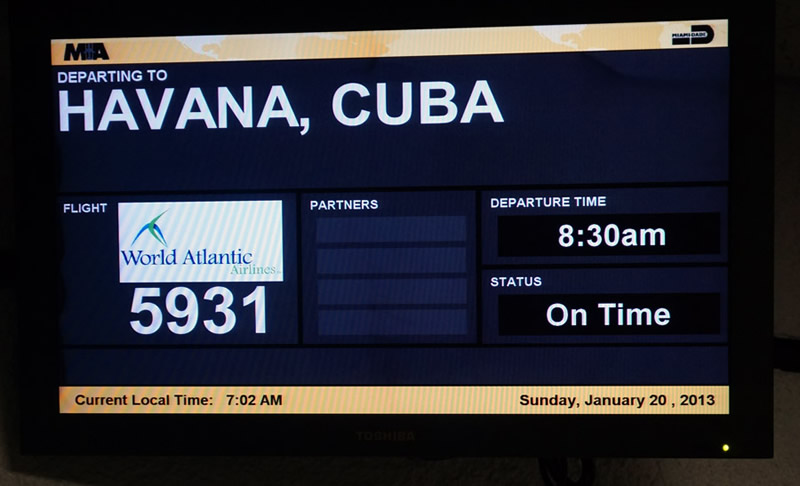
The U.S. should end the Cuban embargo
By Katrina vanden Heuvel (The Washington Post)
Is there a greater example of utter folly than America’s superannuated policy toward Cuba? During more than 50 years corrupted by covert actions, economic sabotage, travel bans and unending embargo, the United States managed to make Castro and Cuba an international symbol of proud independence. Intent on isolating Cuba, Washington has succeeded only in isolating itself in its own hemisphere. Intent on displacing Fidel Castro, the U.S. enmity only added to his nationalist credentials.
A recent visit reveals a Cuba that is already beginning a new, post-Castro era. That only highlights the inanity of the continuing U.S. embargo, a cruel relic of a Cold War era that is long gone.
It is long past time for the United States to end the embargo and influence Cuba, rather than threaten it. Ironically, as a result of a new Cuban migration law lifting more than 50 years of restrictions on the ability of its citizens to travel freely abroad, taking effect this year, Cubans are now freer to travel to the United States than Americans are to Cuba. The president can’t end the travel ban without Congressional approval, but as Peter Kornbluhexplained in a recent piece in The Nation, he can take several steps that would transform our policy.
Obama should start by removing Cuba from the State Department’s list of nations that support terrorism, terminating the economic and commercial sanctions that come with that designation. The Treasury could stop fining international banks for doing business with Cuba, a practice that impedes the country’s slow opening to private enterprise. At the same time, the president could expand licensing for travel to Cuba, making it easier for entrepreneurs, scientists, doctors and others to travel and explore commercial possibilities. The Cold War “Cuban Democracy and Contingency Planning Program,” designed for “regime change,” should be reconfigured to a people-to-people exchange program that would actually have some influence.
It is long past time for the United States to end the embargo and influence Cuba, rather than threaten it. Ironically, as a result of a new Cuban migration law lifting more than 50 years of restrictions on the ability of its citizens to travel freely abroad, taking effect this year, Cubans are now freer to travel to the United States than Americans are to Cuba. The president can’t end the travel ban without Congressional approval, but as Peter Kornbluhexplained in a recent piece in The Nation, he can take several steps that would transform our policy.
Obama should start by removing Cuba from the State Department’s list of nations that support terrorism, terminating the economic and commercial sanctions that come with that designation. The Treasury could stop fining international banks for doing business with Cuba, a practice that impedes the country’s slow opening to private enterprise. At the same time, the president could expand licensing for travel to Cuba, making it easier for entrepreneurs, scientists, doctors and others to travel and explore commercial possibilities. The Cold War “Cuban Democracy and Contingency Planning Program,” designed for “regime change,” should be reconfigured to a people-to-people exchange program that would actually have some influence.
Finally, as a prelude to broader bilateral negotiations on a range of issues, Obama could act directly to remove an open sore in U.S.-Cuban relations. The president could commute the sentences of the so-called Cuban Five, counterterrorism agents arrested in Florida in 1998 and convicted on espionage charges, four of whom are still imprisoned. At the same time, the Cubans could free Alan Gross, who was arrested when he was sent to Cuba by USAID on a quasi-covert mission to supply Jewish groups with satellite connections to the Internet. Former President Jimmy Carter has offered to facilitate these sensible steps.
The Cold War is over; the Soviet Union is no more. The United States sustains the largest trade deficit in the history of the world with China’s communists. And yet the embargo and enmity towards Cuba continue. The intelligence agencies and the embittered and aging Cuban refugees may never acknowledge the world as it is. But it is long past time for the United States to turn to a policy that will engage Cuba rather than isolate ourselves.
Katrina vanden Heuvel is editor and publisher of the Nation magazine. She writes a weekly column for The Post.


